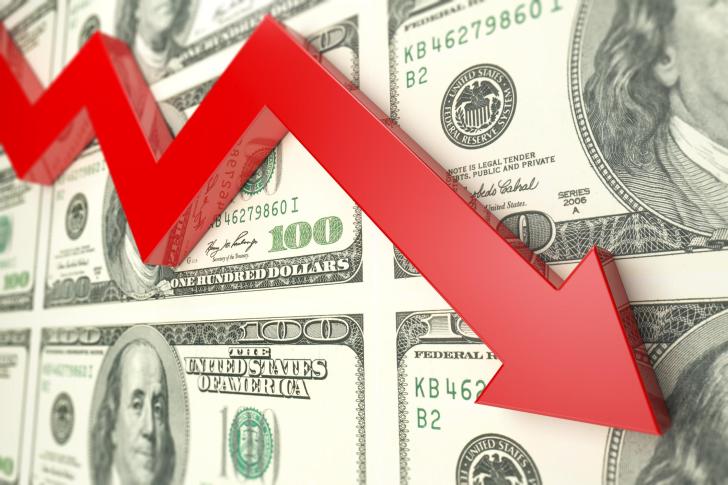News / National
Rand crashes past R19 to the dollar under Ramaphosa's watch
05 Apr 2025 at 15:40hrs |
0 Views

The South African rand continued its steep decline on Friday, 4 May, crashing past the R19 mark against the U.S. dollar amid heightened political uncertainty and growing diplomatic tensions with the United States. By mid-morning, the currency had lost nearly 2%, trading at R19.11 to the dollar, R21.02 to the euro, and R24.82 to the British pound.
The latest blow to the rand comes as U.S. Republican Congressman Ronny Jackson introduced the U.S.-South Africa Bilateral Relations Review Act, a bill aimed at reassessing the relationship between the two nations and potentially imposing sanctions on South African government officials.
Jackson accused South Africa of abandoning its alliance with the United States in favor of strategic ties with global powers such as China, Russia, and Iran, as well as alleged support for terrorist organizations. "South Africa has brazenly abandoned its relationship with the United States to align with China, Russia, Iran, and terrorist organizations - a betrayal that demands serious consequences," Jackson said.
The proposed legislation would target ANC leaders and South African government officials suspected of corruption, with Jackson asserting that "the era of governments undermining American interests without repercussions ends now."
Markets reacted swiftly to the news, with investor confidence further rattled by internal discord within South Africa's fragile Government of National Unity (GNU). A key point of contention has been the recent passing of the 2025 national budget, which includes a controversial one-percentage-point increase in VAT and no inflationary adjustment to personal tax brackets.
Although the budget was narrowly approved on Wednesday, 2 April, it was done without the full backing of the GNU. The Democratic Alliance (DA), the second-largest party in the coalition, voted against the budget, strongly opposing the tax hikes. The ANC, leading the coalition, secured the vote by garnering support from outside the GNU - a move that analysts warn could mark a turning point in the unity government's viability.
As cracks within the GNU deepen, external economic pressures continue to mount. On Wednesday evening, U.S. President Donald Trump announced sweeping global tariffs on imports, targeting countries with significant trade imbalances with the U.S. South Africa was hit with a 30% tariff - one of the highest rates - set to take effect on 9 April.
While some key exports remain exempt, the agriculture and automotive sectors are expected to take a substantial hit. Concerns are also rising over the future of South Africa's eligibility for the African Growth and Opportunity Act (AGOA), a U.S. trade program that provides duty-free access to American markets.
Economists warn that the combination of escalating U.S. hostility, weak domestic political cohesion, and rising fiscal pressure is likely to keep the rand under strain in the coming weeks. With the DA reportedly reconsidering its participation in the GNU, the political landscape remains volatile - further shaking investor confidence at a critical moment for the country.
The latest blow to the rand comes as U.S. Republican Congressman Ronny Jackson introduced the U.S.-South Africa Bilateral Relations Review Act, a bill aimed at reassessing the relationship between the two nations and potentially imposing sanctions on South African government officials.
Jackson accused South Africa of abandoning its alliance with the United States in favor of strategic ties with global powers such as China, Russia, and Iran, as well as alleged support for terrorist organizations. "South Africa has brazenly abandoned its relationship with the United States to align with China, Russia, Iran, and terrorist organizations - a betrayal that demands serious consequences," Jackson said.
The proposed legislation would target ANC leaders and South African government officials suspected of corruption, with Jackson asserting that "the era of governments undermining American interests without repercussions ends now."
Although the budget was narrowly approved on Wednesday, 2 April, it was done without the full backing of the GNU. The Democratic Alliance (DA), the second-largest party in the coalition, voted against the budget, strongly opposing the tax hikes. The ANC, leading the coalition, secured the vote by garnering support from outside the GNU - a move that analysts warn could mark a turning point in the unity government's viability.
As cracks within the GNU deepen, external economic pressures continue to mount. On Wednesday evening, U.S. President Donald Trump announced sweeping global tariffs on imports, targeting countries with significant trade imbalances with the U.S. South Africa was hit with a 30% tariff - one of the highest rates - set to take effect on 9 April.
While some key exports remain exempt, the agriculture and automotive sectors are expected to take a substantial hit. Concerns are also rising over the future of South Africa's eligibility for the African Growth and Opportunity Act (AGOA), a U.S. trade program that provides duty-free access to American markets.
Economists warn that the combination of escalating U.S. hostility, weak domestic political cohesion, and rising fiscal pressure is likely to keep the rand under strain in the coming weeks. With the DA reportedly reconsidering its participation in the GNU, the political landscape remains volatile - further shaking investor confidence at a critical moment for the country.
Source - businesstech
Join the discussion
Loading comments…









































